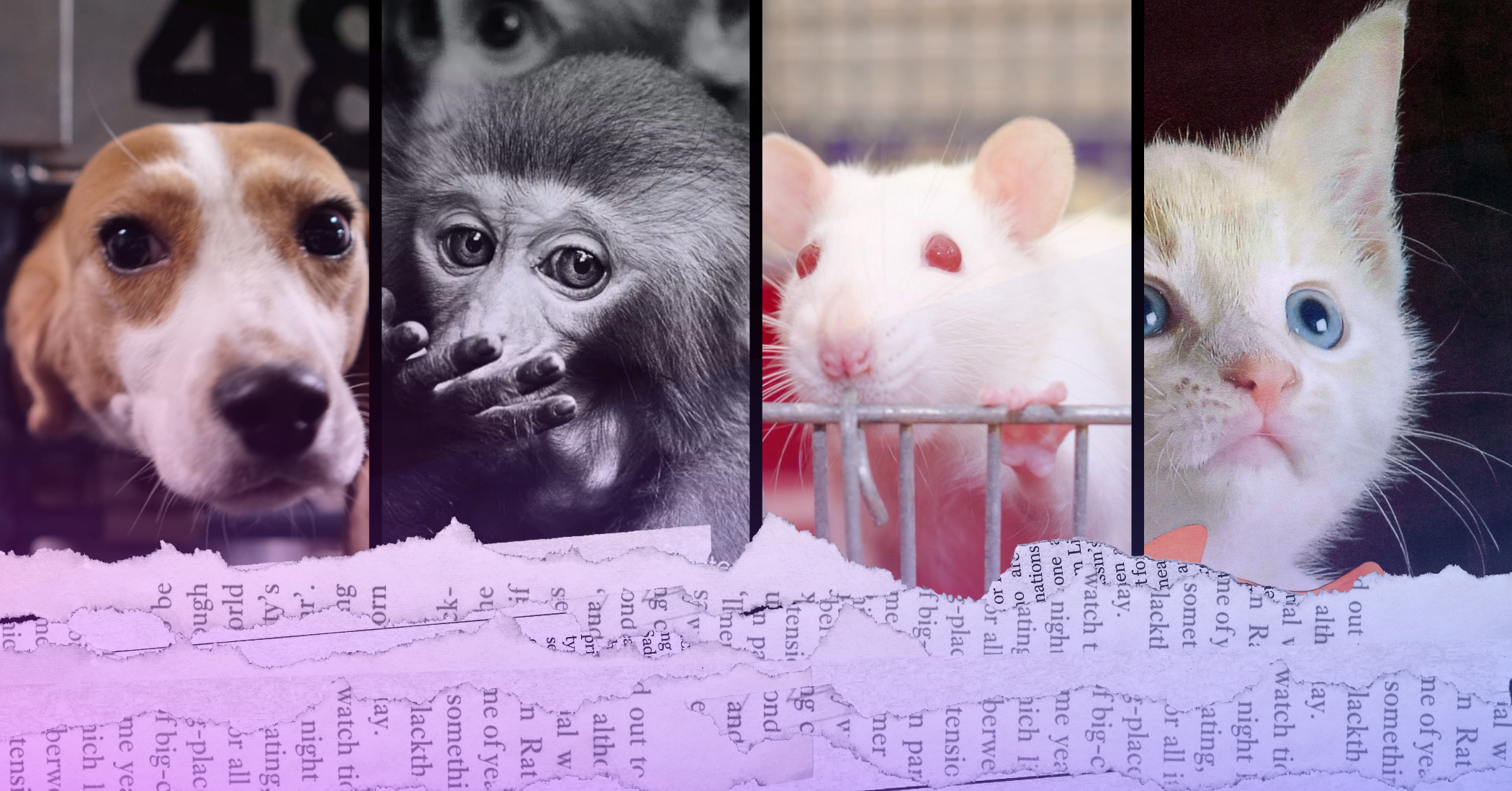
Here’s a roundup of the week’s biggest news stories related to animal research — all the recent media coverage you need to know right now to be the most effective activist for animals in labs.
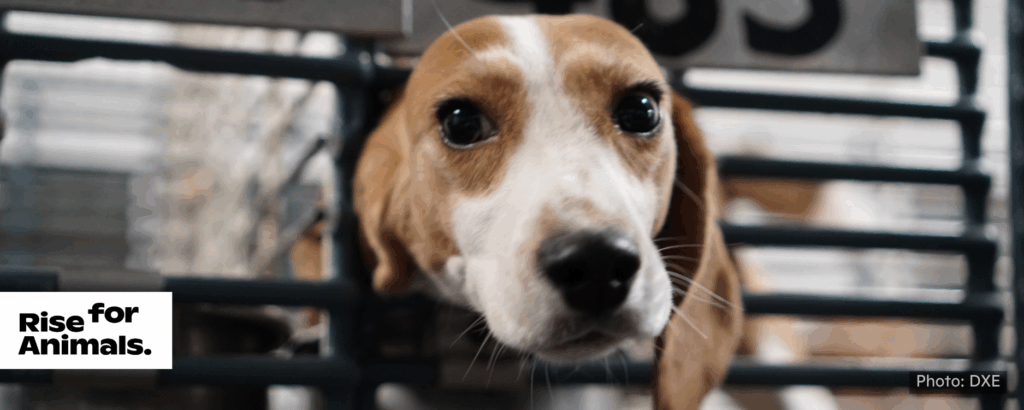 Ridglan Lead Vet Still in Charge Despite License Suspension
Ridglan Lead Vet Still in Charge Despite License Suspension
Rise for Animals, 10/7/2025
Last week, Wisconsin’s Veterinary Examining Board (VEB) unanimously suspended the veterinary license of Richard Van Domelen, lead veterinarian and facility manager at Ridglan Farms.
When a vet deemed unfit to practice medicine stays in charge of a dog-breeding lab, it’s clear: cruelty in animal research isn’t accidental — it’s institutional. 📰 Full Story →
 She’s leading NIH’s push to reduce the use of animals in biomedical research
She’s leading NIH’s push to reduce the use of animals in biomedical research
Sara Talpos, STAT, 10/3/2025
“ . . . in April, [Nicole Kleinstreuer] was appointed acting deputy director for program coordination, planning, and strategic initiatives at NIH. In that role, she is now overseeing the creation of an office devoted to advancing such new methods: the Office of Research, Innovation, Validation, and Application (ORIVA), which will be led by NIH toxicologist Warren Casey.”
“The specifics are still pending approval from the Department of Health and Human Services, said Kleinstreuer, but the plan is for the new office to have two divisions, one developing and encouraging the adoption of new methods in extramural research done by academics, and the other supporting government agencies, including the Food and Drug Administration, seeking to broaden their use of new approaches.”
“Some scientists told STAT they worry the pivot away from animal research is premature, while other critics believe Kleinstreuer isn’t moving fast enough.” 📰 Full Story →
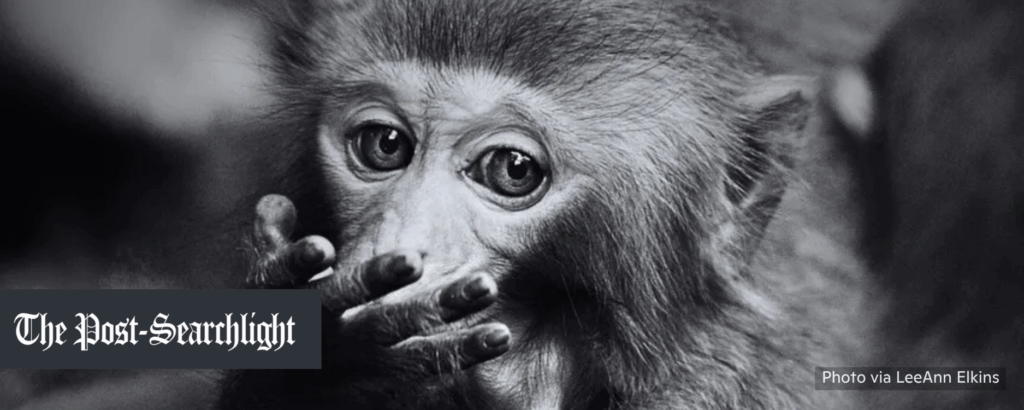 “30,000 Monkeys In Our Backyard” to premier in Bainbridge
“30,000 Monkeys In Our Backyard” to premier in Bainbridge
Species Unite, The Post Searchlight, 10/3/2025
“Species Unite is excited to announce the world premiere screening of ‘30,000 Monkeys In Our Backyard,’ a shocking new documentary that unravels the unbelievable true story of how Bainbridge was targeted to house the country’s biggest monkey farm.”
“The short film follows Bainbridge residents as they discover a company’s horrifying plans to house up to 30,000 monkeys in a breeding facility. Told through the personal accounts of the town’s residents, scientists, ex-monkey lab employees, and legal experts involved in ongoing lawsuits against the plans, the story explores how this small, picturesque town finds itself on the frontlines of America’s controversial multi-billion-dollar animal testing industry.” 📰 Full Story →
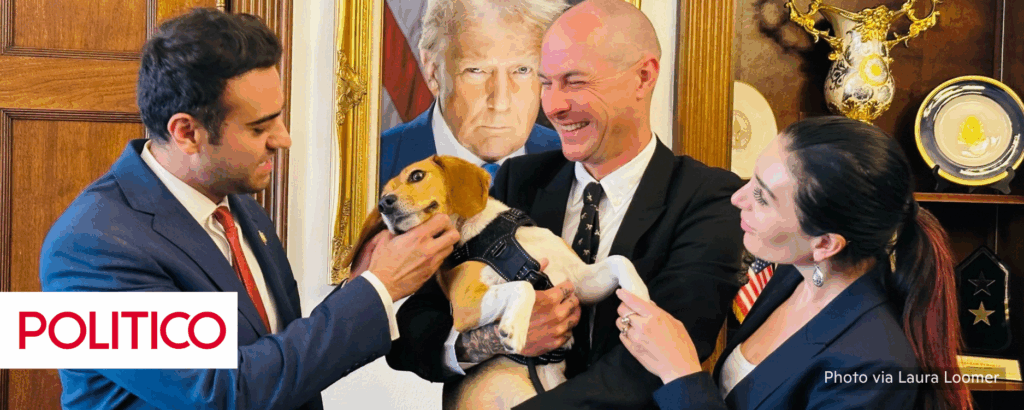 Animal welfare is now part of RFK Jr.’s MAHA agenda
Animal welfare is now part of RFK Jr.’s MAHA agenda
Erin Shumaker, Politico, 10/5/2025
“Robert F. Kennedy Jr.’s making animal welfare a component of his Make America Healthy Again mission. The health secretary has asked his agencies to refine high-tech methods of testing chemicals and drugs that don’t involve killing animals. He thinks phasing out animal testing and using the new methods will help figure out what’s causing chronic disease.”
“‘Human-based technologies and nonanimal models are the answer to MAHA,’ Nicole Kleinstreuer, the National Institutes of Health official managing the effort for Kennedy, told POLITICO. ‘They are the tools that are actually going to give us the insights to tackle chronic disease.’”
“‘It’s an issue that crosses all political lines and divides,’ Kleinstreuer said. ‘You have so many people across both sides of the aisle that are very committed to advancing science, advancing biomedical research, and reducing the need or the use of animal models to the greatest extent possible.’” 📰 Full Story →
 Opinion: Can Trump End This Impossibly Cruel Practice?
Opinion: Can Trump End This Impossibly Cruel Practice?
Deborah Blum, The New York Times, 10/8/2025
“In 2025, it’s fair to state that the research community did not leap on the opportunity to reform its use of animals. Animal activists provide a litany of painful examples to emphasize that point. To name a few: A Harvard lab studying facial recognition took baby monkeys from their mothers and ‘modified’ their ability to see, at one point even suturing shut the eyelids of two baby monkeys. A Department of Agriculture study infected kittens with parasites, partly by forcing them to eat raw flesh from other cats. A National Institutes of Health laboratory deliberately sickened beagles with pathogenic bacteria to study lethal infections. We may have finally reached a moment of change regarding such research. Those three studies have been shut down by Trump administration decisions.”
“Let’s not let political polarization blind us to the end game: a reduction in the use of animals in research . . . Moments of change rarely please everyone. But if you believe, as I do, that reducing reliance on test animals is a good thing, there’s a case for newfound optimism.” 📰 Full Story →
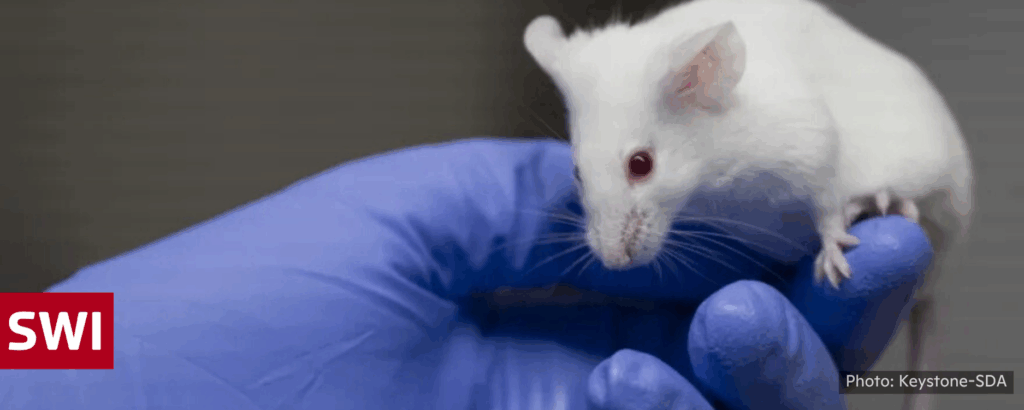 Swiss government rejects initiative against animal testing
Swiss government rejects initiative against animal testing
swissinco.ch, 10/8/2025
“Animal experiments should not be banned in Switzerland, according to the Swiss government, which submitted its views to Parliament on the initiative ‘Yes to a future without animal experiments’. This comes three years after a similar text was widely rejected by the Swiss people.”
“The initiative calls for a total ban on animal experiments and on the breeding of and trade in animals for such experiments . . . The initiative was submitted in November 2024 by an association with over 127,000 signatures. According to the committee, animal experiments are ineffective and ethically unacceptable.”
“In a press release, the federal government confirmed its position, which it has advocated on numerous occasions in recent years: a ban would have negative repercussions for Swiss research and education, as well as for animal and human health, and called for the text to be rejected without counter-proposal.”
“Parliament will now be able to debate the issue.” 📰 Full Story →
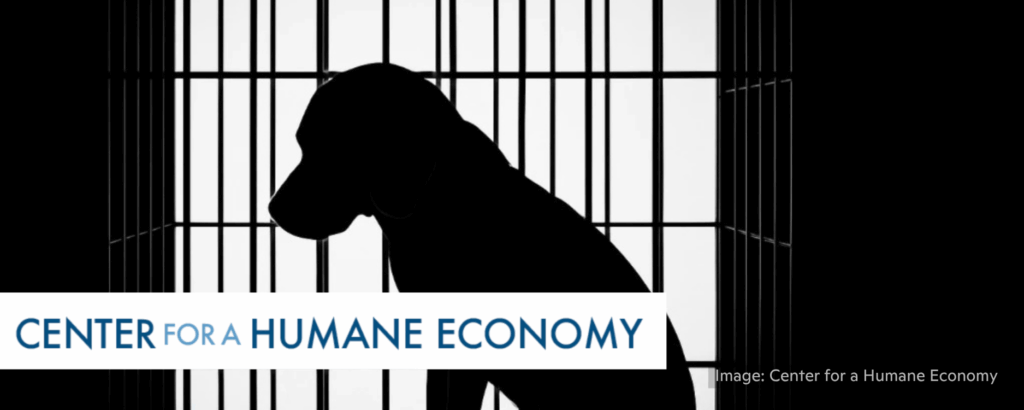 Wisconsin Case Signals Broader Retreat from Beagle Breeding Labs
Wisconsin Case Signals Broader Retreat from Beagle Breeding Labs
Center for a Humane Economy, 10/9/2025
“When the Wisconsin State Veterinary Examining Board voted unanimously to suspend the license of Dr. Richard Van Domelen, the lead veterinarian at Ridglan Farms, the decision marked more than a professional sanction. It symbolized the growing vulnerability of a commercial enterprise built on the mass breeding of beagles for laboratory use — a business in place for decades but now squarely at odds with innovative science, recent policymaking, and public values.”
“The Ridglan saga is more than the story of a single dog-breeding operation supplying animals for invasive and painful tests. It is a case study in transition — a company becoming a casualty of moral and scientific progress as society embraces a more humane and effective economic model . . . The potential unraveling of Ridglan Farms illustrates how science, ethics, and law can imperil companies whose work is built on systemic mistreatment of animals. Businesses that seemed durable and entrenched are especially vulnerable when exposed for cruelty and when innovations make their methods obsolete.” 📰 Full Story →
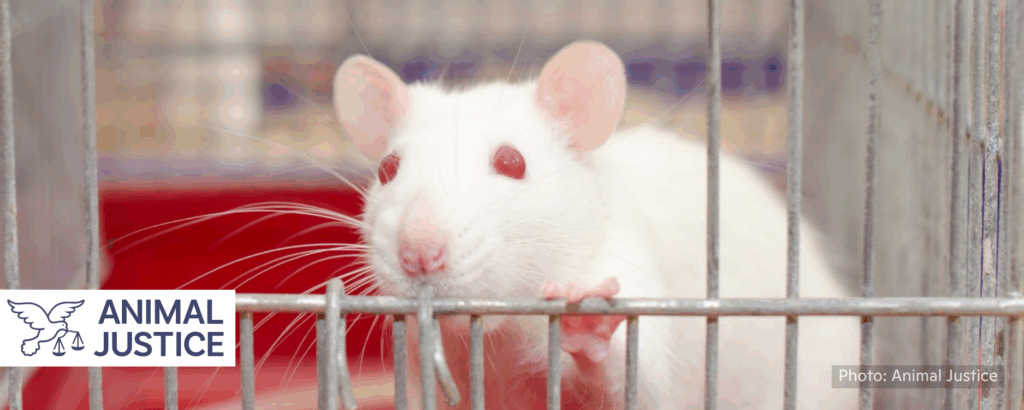 Victory! Canada Releases Bold Strategy to End Toxicity Testing on Animals
Victory! Canada Releases Bold Strategy to End Toxicity Testing on Animals
Kaitlyn Mitchell, Animal Justice, 10/8/2025
“After years of advocacy by Animal Justice and partner organizations to end toxicity testing on animals, Canada has released a national ‘Strategy to replace, reduce, or refine vertebrate animal testing’ under the Canadian Environmental Protection Act, 1999 (CEPA).”
“Canada’s new Strategy lays out a five-part framework for integrating new approach methods (NAMs) into chemical risk assessments. These assessments determine whether a chemical poses risks to the environment or human health. NAMs—such as in vitro assays, AI models, and organ-on-a-chip technologies—often outperform traditional animal methods.” 📰 Full Story →
In case you missed it:
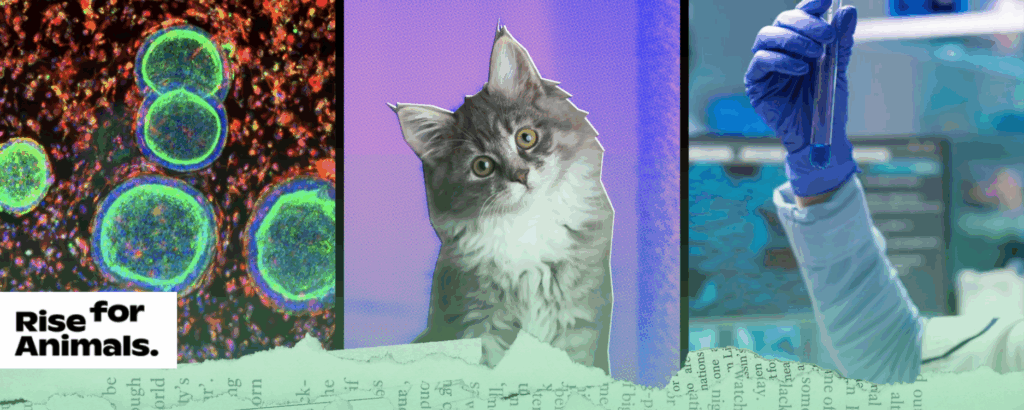 Non-Animal & Human-Relevant Research News: September 2025
Non-Animal & Human-Relevant Research News: September 2025
Rise for Animals, 10/8/2025
Explore the latest breakthroughs in human-relevant science from the last month, including AI-driven drug discovery; human skin models as an animal testing alternative; lab-made mini organs transforming female reproductive medicine; and more. 📰 Full Story →
Share this news compilation on X or Bluesky.
Or copy, paste, and share this link on Facebook or anywhere else:
riseforanimals.org/news/news-oct-10-2025